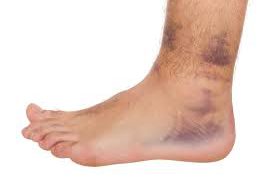How much Carbohydrates is the right amount? Should I bother with carbohydrate counting?
The amount of carbohydrate to consume will vary depending on:
* Your current weight or your desired weight
* Your current height
* your level of activity – how active or you or how much exercise do you do
* whether or not you are taking medications to control your diabetes
* Your age
* Other complications or medical conditions suffering from
The suggested minimum amount of carbohydrates for adults is 130 grams per day.
This will provide a minimal amount of carbohydrate for various organs in the body such as:
* The central nervous system and brain and
* Skeletal muscles (for movement) that prefer to burn carbohydrate as an energy source.
So the answer to the question; how much carbohydrate is the right amount or how much should I eat?
No one know for certain because the condition are relative but whatever amount that is agreed with your health care provider may be the right amount.
Foods high in Carbohydrates?
* Breads, cereals, pasta, and grains
* Rice, beans, and starchy vegetables (potatoes, corn, peas)
* Fruit and fruit juices
* Milk, cheese, and yogurt
* Regular sugared soda, fruity drinks, and candy
* Cakes, cookies, and chocolate candy (too bad this list includes chocolate. My favorite.)
Foods without Carbohydrates
* Protein: Meat, fish, poultry, cheese, eggs, peanut butter, tofu
* Fat: Butter, margarine, mayonnaise, cream cheese, sour cream, nuts, seeds, avocado
Why Should You Keep Your Blood Glucose Controlled
An HbA1c of 6% or less is normal for non-diabetics people. A level of less than 7% is considered the most desirable level for diabetics and represents tight blood glucose control.
A level of hemoglobin A1C of 7% or less has a decreased incident of:
* 33% in diabetic blindness (retinopathy).
* 16% reduction in heart attack or stroke.
* 54% in kidney disease (nephropathy).
* 60% in nerve disease (neuropathy).
* 27% reduction in the overall risk of death.
Pregnant Women
Controlling blood glucose is very important for a diabetic woman wishing to become pregnant.
For a pregnant woman with poor blood glucose control, the risk for a baby to be born with birth defects is about 6-10%; this is roughly twice the incidence for birth defects if the mother’s blood glucose is well controlled.
For those with extremely poor blood glucose control in the first trimester (3 months), there may be up to a 20% risk for birth defects.
Reference:
Read more: http://www.articlesbase. com/nutrition-articles/carbohydrate-counting-and-diabetes-part-4-1031777.html#ixzz1PwxKaswj
Under Creative Commons License: Attribution No Derivatives
The carbohydrate and diabetes series are part of a book. If you interested in obtaining a preview copy then email me at: LuYoungRN@yahoo.com Lu Young, RN, holds an advanced degree in nursing. She has worked in the nursing field for more than ten years. She has provided patient educational materials for the last six years. These educational materials are on a variety subjects such as diabetes, nutrition, exercise, and medications. Ms. Young feels that knowledge is not only power, but can set you free of many of the worries and fears that come from ignorance. So by learning all you can about a subject, you will gain the power to take action. Ms. Young has written a series of articles on nutrition for several online sites. She is working on a book on carbohydrates to be the first in a series of three. The other two topics are on diabetes and exercise and diabetes and medications. So look for these other topics to be coming soon.



















